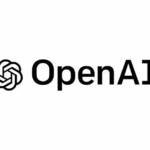Meta, the parent company of Facebook and Instagram, is reportedly developing an artificial intelligence powered search engine. This strategic move aims to lessen the company’s dependency on established search giants, Google and Microsoft’s Bing. The new search engine is designed to provide AI-generated summaries of current events directly within Meta’s AI chatbot, enhancing the user experience on its social media platforms.
According to reports from The Information, Meta has dedicated a team for approximately eight months to build a comprehensive database to support its chatbot. This effort aligns with Meta’s broader strategy to expand its data capabilities, including building location data to potentially rival Google Maps. The company has also introduced NotebookLlama, an open-source audio-based podcast generation tool, indicating its push to compete in wide array of AI-driven services.
Reducing Dependence on External Search Providers
Currently, the Meta AI chatbot integrated into Instagram and Facebook relies on Google and Microsoft Bing to answer user queries about recent news and events. This dependence involves utilizing APIs from these search engines, which can become costly as the volume of requests increases. By developing its own AI search engine, Meta seeks to control more of the data sourcing process, potentially reducing operational costs and enhancing the chatbot’s responsiveness.
There have been reports of Meta’s web crawlers actively gathering information from the internet for several months, which would align with an effort to build such a search engine. This approach is similar to how other AI search platforms, like Perplexity, operate by curating information from multiple sources to deliver relevant and concise answers to user queries.
In addition to building its search capabilities, Meta has formed strategic partnerships to bolster its AI initiatives. Recently, Meta announced a multi-year deal with Reuters, allowing its chatbot to access Reuters’ news articles for generating responses. This partnership ensures that users receive accurate and up-to-date information from a reputable news source, boosting the reliability of Meta’s AI chatbot.
A Competitive Landscape
Meta’s entry into the AI-powered search engine market comes at a point when several other technology companies are also advancing in this space. OpenAI has confirmed the development of its own AI search engine, SearchGPT, while Perplexity’s AI search platform faces legal challenges from News Corp and other publishers regarding copyright and data usage.
Apple is also making strides in search tool development within the App Store, as reported by Bloomberg. This trend highlights a growing movement among tech giants to establish proprietary search solutions at the start of the AI era.
The Benefits for Meta
Establishing an in-house AI search engine offers Meta several strategic advantages. It allows the company greater control over the information delivered to its users, potentially leading to more tailored and efficient search experiences. Additionally, reducing reliance on external providers like Google and Microsoft can lead to significant cost savings, especially as the usage of AI chatbots continues to grow.
Furthermore, owning the search engine infrastructure opens up new avenues for monetization and data collection. Meta can leverage the data gathered through its search engine to improve its services, target advertising more effectively, and gain deeper insights into user behavior.






